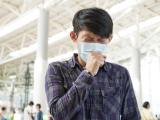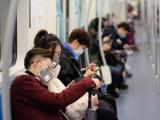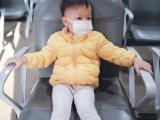Jun 27, 2003 (CIDRAP News) – A Taiwanese man who was thought to have the first case of SARS (severe acute respiratory syndrome) in Japan does not have the disease after all, the World Health Organization (WHO) announced today.
Japanese health officials told the WHO that laboratory testing showed the man has influenza B, according to a WHO statement. The 33-year-old man arrived in Tokyo Jun 21 and experienced a high fever and other symptoms 2 days later.
Taiwanese officials reportedly had worried that the case could prolong Taiwan's inclusion on the WHO list of places with recent local SARS transmission. Only Taiwan and Toronto remain on the list.
Today's WHO announcement includes information to clarify the criteria the agency uses to remove an area from the list of places with recent transmission. "An area is removed when twenty days—twice the incubation period—have passed since the last reported probable case was placed in effective isolation, left the area, or died," the WHO states. "If no new cases are detected during this period, the chain of transmission is considered broken."
The 20-day criterion applies only to people with symptoms, not to asymptomatic people who are isolated at home because of exposure to SARS patients, the agency said.
In Toronto, the most recently detected probable case-patient began having symptoms Jun 12 and was immediately isolated, the WHO says. The last reported probable case in Taiwan was isolated Jun 15.
"A list of countries where local transmission is occurring helps physicians determine whether contact with a case was possible and thus assists in reaching a diagnosis," the statement explains.
In other developments, the US Centers for Disease Control and Prevention (CDC) yesterday canceled its SARS-related warnings against nonessential travel to Beijing and Taiwan, the last two places that were still on the CDC list. WHO had lifted its own travel warning regarding Beijing Jun 24 and one for Taiwan earlier.
CDC Director Julie Gerberding announced cancellation of the CDC advisory at a news conference. The CDC still has travel alerts regarding mainland China, Beijing, Taiwan, Hong Kong, and Toronto. "A travel alert is simply a reminder that you are returning from an area where SARS has been diagnosed and that if you develop illness you should contact a clinician," Gerberding said.
See also:
WHO announcement
http://www.who.int/csr/don/2003_06_27/en/
Transcript of CDC news conference
http://www.cdc.gov/media/transcripts/t030626.htm





















